
Mabel Cratty (June 30, 1868 - February 27, 1928) was an American educator and served as the General Secretary of the National Board of the YWCA from 1906 until her death in 1928.

Mabel Cratty (June 30, 1868 - February 27, 1928) was an American educator and served as the General Secretary of the National Board of the YWCA from 1906 until her death in 1928.
Cratty was born to Harold and Mary Cratty in Bellaire, Ohio. [1] Harold was a merchant and later an insurance agent. [2] Cratty had one brother, Donald, and one sister, Anna. Her uncle was the Methodist bishop James Mills Thoburn. [1]
Cratty attended public schools in Bellaire, with one year at the Lake Erie Seminary, receiving her teacher's education at Ohio Wesleyan University (OWU). [2] She received an honorary Doctor of Laws degree from OWU in 1922.
After graduating from OWU in 1890, Mabel became a public school teacher in Ohio and Delaware, as well as at the Wheeling (West Virginia) Seminary. [2] From 1900 to 1904, she was the principal of a high school in Delaware, Ohio. [1]
Cratty's involvement with the YWCA, an organization she came to call "the home of her spirit," came through college friends who convinced her to join the Ohio State Committee of the American Committee of Young Women's Christian Associations in 1902. In 1904 she resigned from the Delaware High School and moved to Chicago to become Associate General Secretary of the American Committee. [2]
When the American Committee merged with the International Board of Women's and Young Women's Christian Associations to form the YWCA of the U.S.A. in 1906, Cratty moved to New York City to take charge of the new organization's Home Department. After a year or so working out administrative structure, by-laws, motto, seal, and articles of incorporation, the YWCA of the U.S.A. appointed Cratty General Secretary, the chief executive staff member. She held this position until her death from pneumonia in 1928. [2]
Cratty credited her Scots-Irish Thoburn relatives with a singular determination to "transcend a narrow point of view." As an administrator, she quietly worked to shape the YWCA into an organization with "prophetic vision and courage." A New York Times editorial following her death in 1928 called her a "seer among her sisters" citing her "exceptional foresight in anticipating the direction which social and economic development of womanhood would take" in the first two and a half decades of the twentieth century. [2]
In addition to this and other work with the YWCA, Mabel Cratty was involved with a variety of other organizations, including World Student Christian Federation (WSCF), and the National Committee on the Cause and Cure of War (CCCW).
Mabel Cratty died of pneumonia on February 27, 1928, in New York City. She was buried in the family plot in Bellaire, Ohio. [2]
The Women's Building on the campus of George Williams College (GWC), built in 1926, was renamed Mabel Cratty Hall in her honor in 1930. [3] Her papers from 1904 to 1928 are a part of the Sophia Smith Collection of Smith College. [2] At the time of her death, she lived in New York City. [1]

Ohio Wesleyan University (OWU) is a private liberal arts college in Delaware, Ohio. It was founded in 1842 by Methodist leaders and Central Ohio residents as a nonsectarian institution, and is a member of the Ohio Five – a consortium of Ohio liberal arts colleges. Ohio Wesleyan has always admitted students irrespective of religion or race and maintained that the university "is forever to be conducted on the most liberal principles."

Dorothy Irene Height was an African American civil rights and women's rights activist. She focused on the issues of African American women, including unemployment, illiteracy, and voter awareness. Height is credited as the first leader in the civil rights movement to recognize inequality for women and African Americans as problems that should be considered as a whole. She was the president of the National Council of Negro Women for 40 years. Height's role in the "Big Six" civil rights movement was frequently ignored by the press due to sexism. In 1974, she was named to the National Commission for the Protection of Human Subjects of Biomedical and Behavioral Research, which published the Belmont Report, a bioethics report in response to the infamous "Tuskegee Syphilis Study.
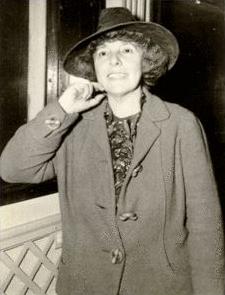
Dorothy Kenyon was a New York attorney, judge, feminist and political activist in support of civil liberties. During the era of McCarthyite persecution, she was accused of being affiliated with 28 communist front organizations. Kenyon was a charismatic speaker, and she regularly travelled throughout the U.S. lecturing about civil liberties, the law, and women's equality.

James Mills Thoburn was an American bishop of the Methodist Episcopal Church as well as an author. He did missionary work in India.
The Sophia Smith Collection at Smith College is an internationally recognized repository of manuscripts, photographs, periodicals and other primary sources in women's history.

The Young Women's Christian Association (YWCA) is a nonprofit organization with a focus on empowerment, leadership, and rights of women, young women, and girls in more than 100 countries.

Josephine Dodge Daskam, Mrs. Selden Bacon was an American writer of great versatility. She is chiefly known as a writer who made the point of having female protagonists.
Eleanor Shipley Duckett was an English-born philologist and medieval historian who spent most of her career in the United States. For thirty years, she taught at Smith College. Duckett published a number of books with University of Michigan Press, mainly on European history, religious history, and saints, and was a reviewer for The New York Times Book Review. Initially, Duckett was known for writing accessible historical books on the Middle Ages; later, she acquired a reputation as an authority on early medieval saints. A devout Episcopalian, Duckett was the lifelong companion of novelist Mary Ellen Chase.
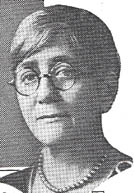
Helen Tufts Bailie was a social reformer and activist. Tufts is known as outing the Daughters of the Revolution for having a blacklist about individuals and organizations, in 1928. This controversy led Tufts to be banned from the organization and to become an advocate for women's, labor, and social rights.
Joann W. Aalfs was an American women's rights and LGBT rights activist.
Ruth Frances Woodsmall was an American high school English teacher, YWCA member, and author. She served as Chief of the Women's Affairs Section of the Allied High Commission for Occupied Germany, worked for the United Nations Commission on the Status of Women, and was a member of UNESCO Working Party on the Equality of Access of Women to Education. Her publications include: Moslem Women Enter a New World (1936), and Eastern Women Today and Tomorrow (1933), Study of the Role of Women, Their Activities and Organizations in Lebanon, Egypt, Iraq, Jordan, and Syria (1955) and Women and the New East (1960).
Dorothy Hamilton Brush was a birth control advocate, women's rights advocate and author. She worked with Margaret Sanger and the birth control movement and wrote plays, travel articles, and books

Mary Abby van Kleeck was an American social scientist of the 20th century. She was a notable figure in the American labor movement as well as a proponent of scientific management and a planned economy.

Eleanor Gladys Copenhaver (1896–1985) was a social worker and activist who spent over 40 years as an organizer and community service worker for the YWCA. She began as a community organizer and worked her way up to the labor division, finally becoming head of the Industrial Division from 1937 to 1947. At the end of World War II, when women were phased out of the labor market, she was briefly dismissed, but then hired back to organize support for the communities springing up around the defense industry.
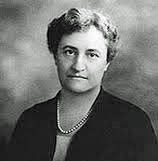
Hannah Hallowell Clothier Hull was an American clubwoman, feminist, and pacifist, one of the founders and leaders of the Women's Peace Party and the Women's International League for Peace and Freedom.

Bessie Boies Cotton was an American staff member of the Young Women's Christian Association (YWCA). She worked in Moscow and Petrograd during the Russian Provisional Government period.
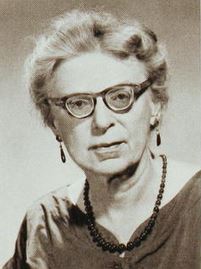
Elmina R. Lucke was an American educator, social worker and international relations expert. After graduating from Oberlin College, she taught high school in Ohio and worked on social service projects before earning her doctorate in International Law and Relations from Columbia University. From 1927 to 1946, she taught at the Teachers College of Columbia making numerous trips abroad to study social work. In 1946, she moved to India to found the first master's degree program in Asia and second school of social work in the country, serving as its director for the next three years. Between 1950 and 1955, she served as a consultant to social work schools in Cairo, Egypt and Pakistan. From 1959 to 1965, she served as a delegate to the United Nations for various women's groups, presenting proposals on issues which impacted women. She was honored by the United Nations for her work in international relations in 1975 and was inducted into the Michigan Women's Hall of Fame in 1986.

Emma S. Connor Ransom was an American educator and clubwoman, active in the African Methodist Episcopal Church (AME) and the YWCA.

Elisabeth Luce Moore was an American philanthropist, educator, and volunteer.
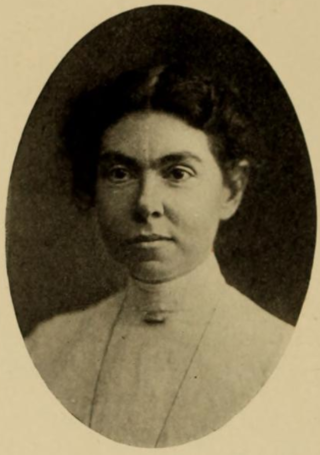
Alice Weld Tallant was an American physician and medical school professor. When her employment as a professor of obstetrics was terminated at the Woman's Medical College of Pennsylvania, it sparked the "Tallant Affair", in which students staged a strike and several colleagues resigned their positions in protest.